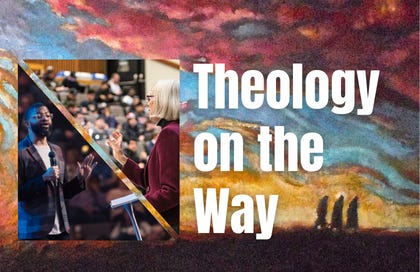Series: Mission and the Church-Academy Rift
Implications of the American Theological Higher Education Crisis
Movement Ideology and Eschatology among US Churches of Christ
Toward Missional Urgency in Our Time
“Is there a responsible path between feverish eschatological activism, on the one hand, and lazy eschatological indifference, on the other?”1 This is James Scherer’s question in a prescient 1990 essay. He points out the eschatological implications of Francis Fukuyama’s declaration of “the end of history” at the fall of the Soviet Union: “The real problem with the thesis about the end of history—a secular version of ‘realized eschatology’—is that it contradicts an important part of the biblical scenario for the fulfilment of history, and undercuts the Christian eschatological hope for the final consummation of God’s purpose. . . . The messianic promise turns out to be a cornucopia of consumer goods and bourgeois values. The world’s future has already fully arrived and it is NOW.”2 It is important to recognize the power of this eschatology for an aneschatological tradition like mine, but we are alone in our vulnerability. The eschatological anemia of so much American missiology focused on one dimension of the “end times” (whether provoking the return of Christ, saving “souls,” or being judged a good and faithful servant) leaves the church in need of a vision of the future that helps interpret the present.
Within what Charles Taylor calls “the immanent frame,”3 the holes in all of our eschatologies are easily, comfortably filled in by the narrative of globalized secularism. Supposedly eschatological motivations for mission then become bound to either a reactionary spiritualism or a vapid humanism. I would like to emphasize that the latter is the far greater problem for Millennials and Gen Z. If we accept that neither the triumphalism of hastening the day nor the missionary obligation carried out under threat of judgment is eschatologically adequate, but the goodwill of postmodern humanism is all that remains, then we should expect younger generations to feel no urgency about mission. Because, as Fukuyama intimates, there is no teleology in the immanent frame, and where there is no teleology, there is no meaning.
For this reason, I think Scherer is right when he says, “Christian theology, and certainly missiology, must not allow time—and above all the time between the resurrection and the parousia of Christ—to be evacuated of its God-given meaning. Nor can it permit salvation history to be flattened out into a this-worldly eschatology. For time and history are invested by their Creator with sacred meaning as arenas of divine purpose and revelation, given crucial significance by the incarnation of the eternal Word (John 1:1–14; Galatians 4:4–5), and directed toward a final goal and divinely appointed end.”4 Christian eschatology is about the meaning of history and the meaningfulness of our participation in God’s work in history, and that is where missional urgency in our time is to be found.
Keep reading with a 7-day free trial
Subscribe to Theology on the Way to keep reading this post and get 7 days of free access to the full post archives.




